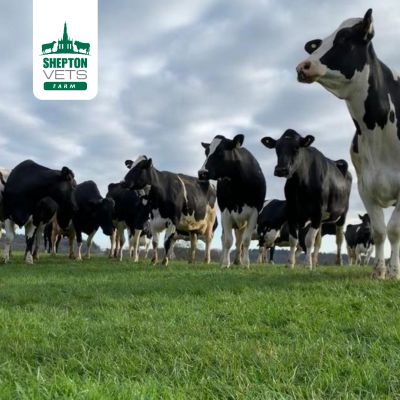
Posted By:
Traders and processors dealing in the export of products of animal origin (POAO) to the EU or Northern Ireland are encountering significant regulatory shifts, especially concerning regular vet visits and the attestation process. In conjunction with this, a new vet attestation rule, effective from December 13th, is set to impact producers selling livestock at markets, even if they don't have immediate plans for export. In this comprehensive guide, we explore the evolving landscape of certifications and the specific nuances of the vet attestation rule.
In addition to the existing certification requirements for animal health visits, a new vet attestation rule comes into play from December 13th. This rule mandates that all producers selling livestock at markets, and potentially those taking animals to the abattoir, must possess a veterinary attestation document for EU exports. While this might seem pertinent only for those directly involved in exports, markets are increasingly requesting this information on entry forms, underscoring its broader relevance.
A vet attestation involves an annual farm visit to validate the absence of notifiable diseases and provide insights on biosecurity measures. This visit results in a signed declaration form for each holding number, containing all the necessary details for compliance. The frequency of this attestation is set at every 12 months, and it can be conveniently combined with other veterinary work.
Red Tractor Assurance Scheme Exemption:
Producers who are part of the Red Tractor assurance scheme are exempt from the vet attestation requirement, as their membership serves as sufficient evidence of regular health visits from a vet.
Animal Health and Welfare Pathway Visit:
For those seeking an alternative to the standalone vet attestation, an Animal Health and Welfare Pathway visit presents a viable option. This visit includes the attestation process at no additional cost if applied for, streamlining the compliance process.
Farms which are part of other qualifying assurance schemes do not need to complete the attached veterinary declaration. Membership of these farm assurance schemes is accepted as evidence that a premises of origin meets the requirement for regular health visits from a vet. The additional qualifying schemes are:
· Quality Meat Scotland (QMS)
· Farm Assured Welsh Livestock Beef and Lamb Scheme (FAWL) (Welsh Lamb and Beef Producers Ltd (WLBP))
Cost Implications:
For those not covered by the Red Tractor schemeother qualifying assurance scheme or the Animal Health and Welfare Pathway visit, the cost for the vet attestation is £95+VAT.
As the regulatory landscape for animal exports undergoes significant changes, understanding the intricacies of vet attestation becomes paramount. Beyond its role in facilitating exports, the vet attestation rule is poised to become a standard requirement for livestock transactions at markets. Navigating this evolving framework necessitates a proactive approach, whether through existing assurance schemes, specialised visits, or direct engagement with veterinary attestation procedures.
Stay informed, stay compliant. For booking or additional information, please contact our practice directly.
Whilst on my visits I have been having several discussions...
As our feline friends get older there are a few conditions...
Another winter discussion group season is now behind...
©2024 Shepton Veterinary Group Ltd., All rights reserved.
Privacy Policy • Terms & Conditions • Cookie Policy